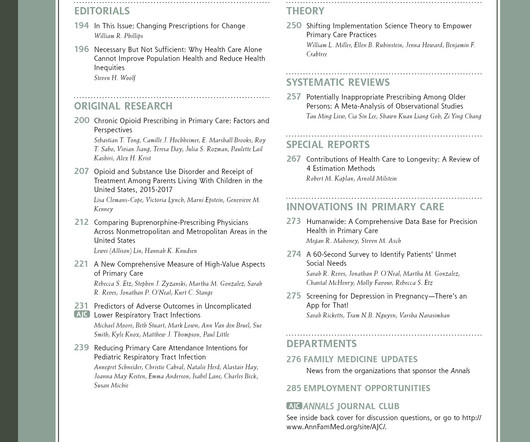Convenience or Continuity: When Are Patients Willing to Wait to See Their Own Doctor? [Original Research]
Annals of Family Medicine
MARCH 24, 2025
More than one-half of patients preferred to see only their PCP for an annual checkup (52.6%), follow-up of a chronic condition (54.6%), or follow-up for a mental health condition (56.8%).












Let's personalize your content